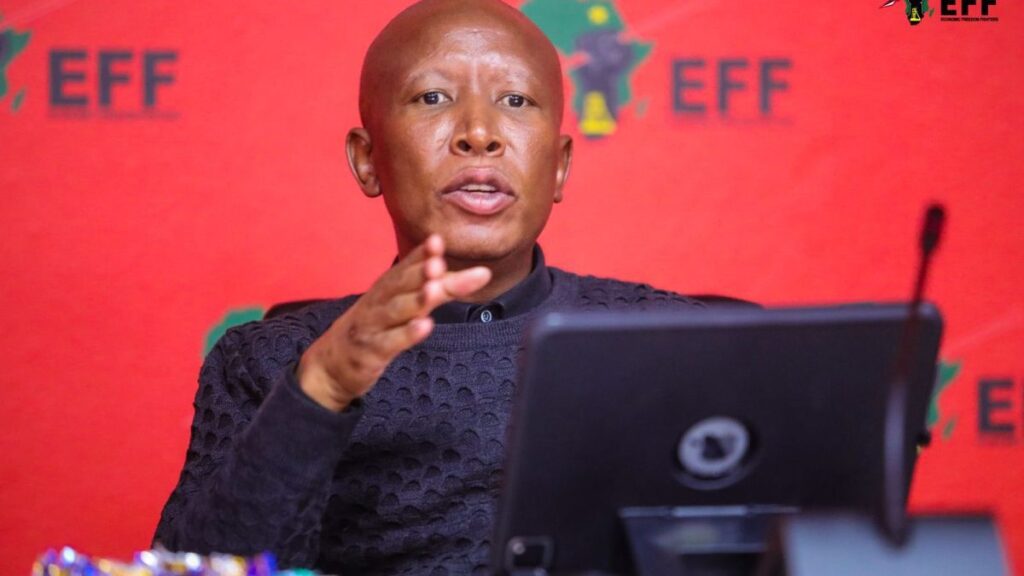South African opposition politician Julius Malema has been convicted of unlawfully discharging a firearm in public, following a highly publicized incident dating back to 2018.
The conviction stems from a video that showed the Economic Freedom Fighters (EFF) leader firing several live rounds into the air during the party’s fifth anniversary celebrations in the Eastern Cape province. Malema was accused of firing between 14 and 15 shots in front of an estimated crowd of 20,000 supporters.
Malema faced charges that included unlawful possession of a firearm and ammunition, reckless endangerment, and discharging a weapon in a public space. While his former bodyguard, Adriaan Snyman, faced similar charges, he was acquitted. The most serious charge carries a maximum penalty of 15 years in prison.
In court, Malema defended his actions by claiming the firearm was not his and that he had fired the shots simply to energize the crowd. However, after a three-day deliberation, the magistrate declared him guilty. The case has now been postponed to January 2026 for pre-sentencing.
This marks Malema’s second conviction in less than two months. Earlier, he was found guilty of hate speech following remarks that were deemed to incite violence. At a political rally, he stated that “no white man is going to beat me up” and that “a revolution demands that at some point there must be killing.” The equality court ruled that these comments demonstrated an intent to incite harm.
Malema’s political career has long been marked by controversy. As the leader of the EFF, he has positioned himself as a fierce critic of inequality and land ownership patterns in South Africa, while also facing accusations of stoking racial tensions. His clashes with lobby groups, particularly AfriForum, have frequently brought him into the spotlight. AfriForum was behind both the gun case and the hate speech complaint, intensifying the already strained relationship between the group and the EFF.
With sentencing looming in early 2026, Malema’s future remains uncertain. His conviction could carry severe political consequences at a time when his party continues to grow its influence, particularly among young and economically marginalized South Africans.

